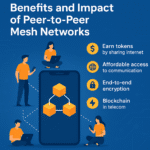LSK: The Ultimate Blockchain Weapon to Fight Centralization in 2025
In today’s digital era, applications are distributed through centralized platforms like the App Store and Google Play, both controlled by major corporations. While these platforms provide convenience, they also impose limitations, restricting freedom, innovation, and transparency. To overcome these restrictions, many developers are now exploring alternative strategies such as SEO crossover strategies, which help applications and content reach wider audiences without depending solely on centralized distribution channels.
That’s where LSK (Lisk) comes in. Launched in 2016, Lisk is a blockchain application platform that empowers developers and users by making blockchain technology accessible to everyone.
Recently, LSK gained attention after its price surged by 65% upon being listed on BitFlyer. This significant milestone highlights its growing recognition as a true decentralized alternative to centralized systems.

What is LSK? A Beginner-Friendly Explanation
For developers, understanding how to effectively present and promote new technology is crucial, which is why resources like writing a launch announcement blog post can provide valuable insights into making blockchain projects stand out in a competitive space.
Transactions in LSK are very fast, usually taking just 10 seconds, with confirmation finalized within 1–2 minutes. This speed makes it a practical digital asset for both everyday use and larger blockchain applications.
A Decentralized Network with Delegated Proof of Stake
Unlike Bitcoin, which uses Proof of Work, or Nxt, which uses Proof of Stake, Lisk uses Delegated Proof of Stake (DPoS). In this system, elected delegates validate transactions. This makes the network scalable, energy-efficient, and truly decentralized.
The Lisk SDK and Sidechains
The Lisk SDK is entirely based on JavaScript, allowing developers to create Sidechains—independent blockchains connected to the Lisk mainchain. This gives developers freedom to customize applications without central restrictions.
With Sidechains, developers can build independent social networks, games, exchanges, and financial platforms. Each Sidechain can even support its own cryptocurrency for internal use. To ensure these decentralized platforms are user-friendly and sustainable, it’s important to avoid common pitfalls such as eCommerce website design mistakes, which can negatively impact adoption and long-term growth.
Blockchain Applications and Services with Lisk
The Lisk SDK doesn’t just build applications; it also enables the creation of specialized blockchain services. These services can power anything from finance to gaming, storage, and contract platforms. Every service runs on Sidechains, ensuring scalability and independence.
Decentralized App Directory and Marketplace
Every Sidechain must register on the Lisk mainchain, forming a decentralized directory. This creates a system where users can explore and trust available apps and services.
Through the Lisk Marketplace, developers showcase projects, delegates support Sidechains, and users gain access to innovative decentralized apps—all within a transparent, open ecosystem.

FAQs about LSK
What is LSK?
LSK is both a cryptocurrency and a blockchain platform.How is Lisk different from Bitcoin?
It uses Delegated Proof of Stake instead of Proof of Work.What are Sidechains in Lisk?
Independent blockchains linked to the Lisk mainchain.Do I need to be a developer to use Lisk?
No. Everyday users can access decentralized apps while developers build them.What is the Lisk Marketplace?
A hub connecting developers, delegates, and users.Why did LSK’s price rise by 65%?
Because of its BitFlyer listing, which boosted adoption.
Conclusion
LSK is more than just another digital coin. It’s a complete blockchain platform designed to fight centralization and empower innovation. With Sidechains, a simple SDK, and a thriving decentralized marketplace, Lisk paves the way toward a freer digital future.
By challenging centralized models like App Store and Google Play, LSK is shaping a decentralized tomorrow—transparent, independent, and accessible for all




